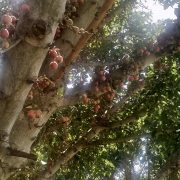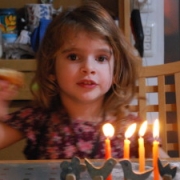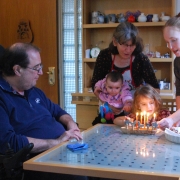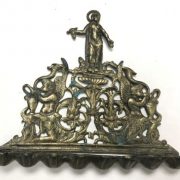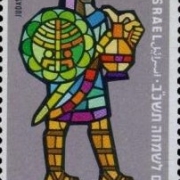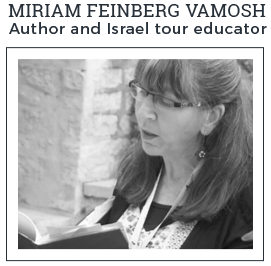In the Candles’ Rays
In the Candles’ Rays
This Hanukkah, when we spin our dreidls, fry potato latkes, savor donuts, exchange gifts, and first of all, during the spiritual high of lighting the menorah with our family or community, probably the last thing on our minds is what the ancient sages thought about the holiday. But it’s interesting to learn that they seem to actually have been ambivalent, we’re told, because the story relied on military victory and political power in a time when such attempts had so recently ended in failure.* That ambivalence emerges in the short shrift they gave the story: In discussing what materials may be used to light Sabbath or Hanukkah lamps, the Talmudic sages cite a miracle (not mentioned in books of the Maccabees): A still-pure, small cruse of oil, found in the Temple after its rededication following years of defilement by pagans, burned for eight days (Shabbat 21b). In memory of that wonder, we light one candle on each of the eight nights of the holiday.
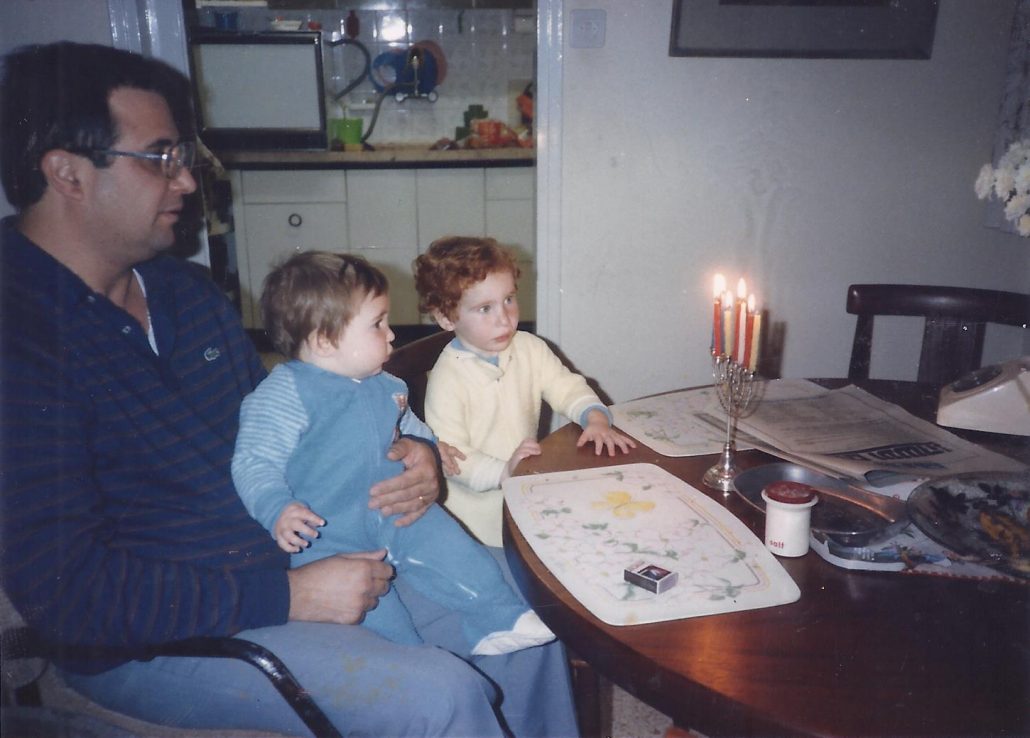
A Hanukkah hymn I sang as a child began: “In the candle’s rays I see / lovely pictures beckoning me / Judah with his shield and sword / pledged to battle for the Lord.” But the “candles’ rays” reveal other things, too. Fire as a purifier for fine metals seems be a popular biblical metaphor (Zech. 13:9, Mal. 3:2, Prov. 17:3). It crosses religious lines, too, as I noticed recently on social media: Malachi’s description of a refiner of silver found its way into a story one woman posted that her rabbi had preached, and another posted the exact same story, but with her minister as the preacher. No doubt both are true.
In biblical tradition, fire symbolizes the presence of God – to Moses in the burning bush (Ex. 3:1–17) and to the Israelites in a pillar of fire (Exod 40:38; Ps 105:39; Zech 2:5). Words like fire are God’s tool of judgment (Jer 5:14). Among humans, words are likened to fire in a different way: In the New Testament book of James (3:5–6) the human tongue is like fire – words can leave a path of destruction, recalling the biblical and rabbinic prohibition against gossip (Lev. 19:16, Babylonian Talmud Arakhin 15b).
Dedication and Unity
“When humans domesticated fire, they gained control of an obedient and potentially limitless force…The power of fire was not limited by the form, structure or strength of the human body. The domestication of fire was a sign of things to come.” (Yuval Noah Harari, Sapiens, Ch. 1). Harari goes on to connect the invention of fire to the eventual invention of the atom bomb. Potentially limitless, yes. The Zohar agrees, on a spiritual level: “Whoever desires to penetrate the wisdom of holy unification should contemplate the flames ascending from a glowing ember to a burning candle.”**
But obedient? Hard to get behind that, considering the forests, homes and lives we’ve seen destroyed recently in conflagrations all over the world. On the other hand, when we have a “fire in our belly,” it means we have dedicated ourselves to an inner voice to do something, usually positive. And “around the tribal campfire” has become an Israeli metaphor for social cohesion – for the people you bring into your inner circle.
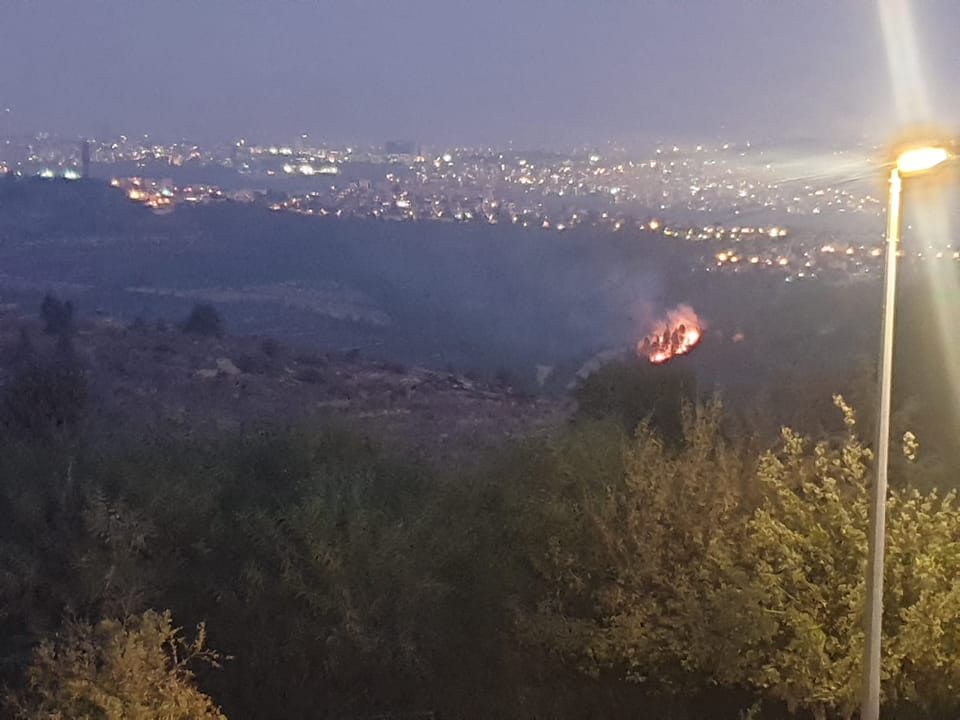
The fire shall not go out…
“And the fire upon the altar shall be kept burning thereby, it shall not go out…” (Lev. 6:5)” The sages said the doubling of the command, that the fire should be kept burning and not go out, was because fire had the power to drive out evil from the world, especially when it is made to flare up in the morning, when lovingkindness is said to rule the world.***
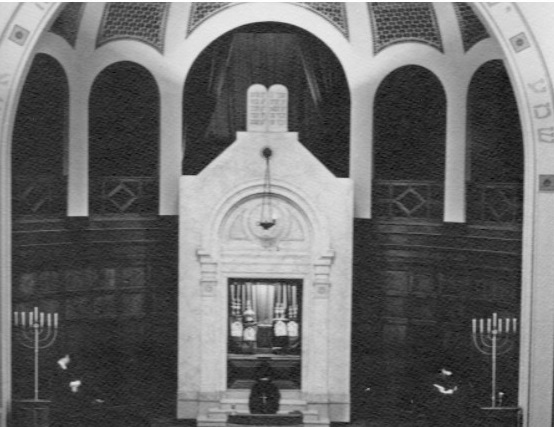
A remnant of the symbol of this eternal flame is found in synagogues throughout the world, in the form of the Eternal Light. In the synagogue where I was raised, Har Sinai in Trenton, New Jersey, the Eternal Light above the Torah Ark still burns bright in my mind. I recall asking my parents during services in a child’s wondrous whisper “It never goes out? Never?
Unlike most Jewish holidays, Hanukkah does not occur on the full moon, but on 25 Kislev, when the moon is dark. This Hanukkah, as we place our menorahs in our windows, we recall the phase of the moon as symbolic, too. May the best within us burn bright, to bless the lives of others, even in the darkest hours.
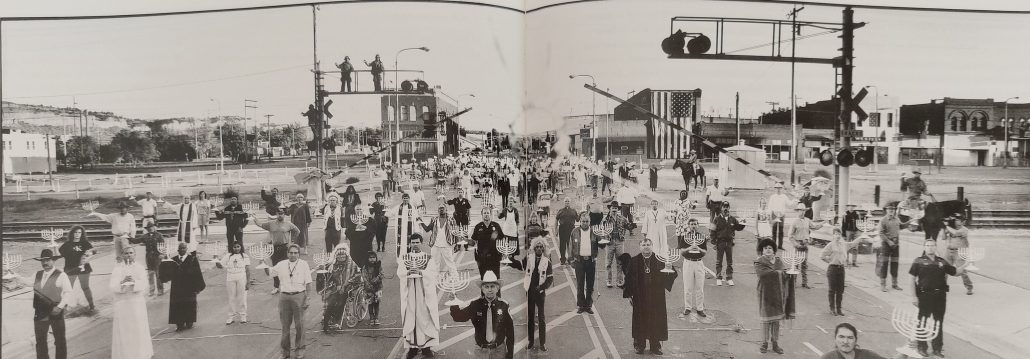

Want to know more?
Zion, N. and Spectre, B. (eds.) A Different Light, the Hanukkah Book of Celebration
*Zion, N. and Spectre, B. (eds.) A Different Light, the Big Book of Hanukkah.
**Sermon on the Eternal Light, by Dr. Maurice Mizrahi, March 28, 2015. https://images.shulcloud.com/618/uploads/PDFs/Divrei_Torah/150328-the-eternal-light-tzav.pdf
***Kabbala Online, from the teachings of Rabbi Shimon bar Yochai, translation and commentary by Shmuel-Simcha Treister, based on Metok MiDevash. ttps://www.chabad.org/kabbalah/article_cdo/aid/379902/jewish/Consuming-Fire-of-Loving-kindness.htm.
I recognize that the photograph “Citizens protesting antisemitic acts in Billings, Montana” © 1996, by Frederic Brenner, is not mine, but I consider my reproduction of this copyrighted work legal, as it falls under the doctrine of fair use.

